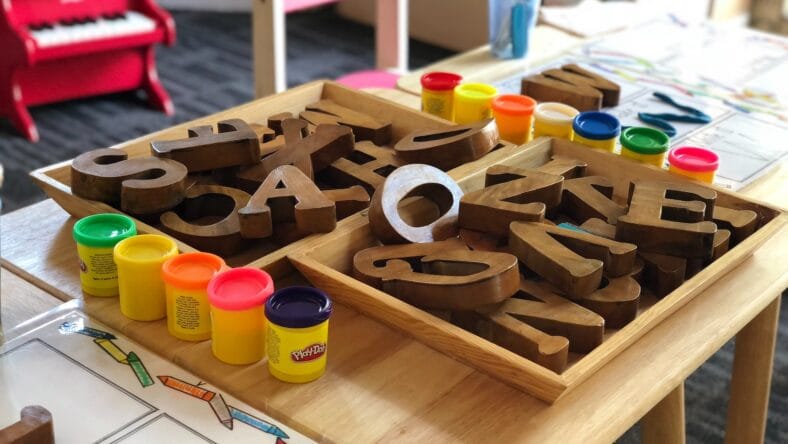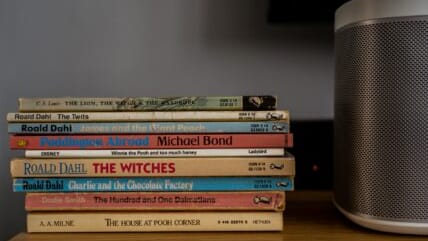
Preschool is a child’s first experience with the education system, and often it’s their first time interacting with people they do not know. It’s a big milestone for both parents and children, and you should prepare kids for preschool with care so your child will have the best experience possible.
RELATED: Starting a School Club for Elementary Students
How Old Do Children Have to be for Preschool

Children between the ages of three and five are perfect for preschool. Of course, you should always check with the schools and programs around you to make sure that your child is the right age. There are also the behavior requirements of preschool, and making sure your child has the right skills for preschool, which will be addressed later in this article.
Benefits of Preschool
There are lots of benefits to preschool, especially since it prepares your child for elementary school and the rules that go along with it. Your child will get to socialize with others their age and make new friends in a whole new environment they’ve never been in before. Sometimes this can be scary at first, but often younger children can adapt to new situations pretty quickly.
This will also be the first time your child will be following directions from a teacher, instead of someone who is related to them. It helps with respect and listening skills, especially if your child does something wrong. Finally, one of the biggest benefits of preschool is independence. This is a great chance for your child to start to figure out who they are in the world, and their own personality towards others.
Skills to Have Before Starting Preschool

Of course, you want to prepare kids for preschool in another way too – at home before they start. Not only does this help the teacher with taking care of your child, but allows them to get more enjoyment out of the experience.
Your child should be able to separate from you without too much fuss; try having them stay with a family member or at a playdate without you. This will not only make the first drop-off better for both parent and child, but eliminate any animosity between parent and child for leaving them behind.
Basic communication and emotion regulation is also a huge plus for the teacher. Toddlers all have their special way of saying words, for example “Floops” instead of “Fruit Loops,” but they should really know how to ask for certain things like the bathroom or a drink of water. This connects directly to emotional management because if the teacher cannot understand your child and they throw a tantrum due to poor emotional management, they can cause huge problems for the rest of the class and the teacher.
Make sure you go over things like asking to go to the bathroom or asking for a drink with your child, and communicate to them the importance of patience and staying calm.
CHECK OUT: Fantastic Children’s Books for Your Kid: 2001-2010
The last group of skills falls under the self-management category. Your child should be able to put on their clothes and shoes, take off a jacket, and be potty trained. Some locations might even require that your child is potty trained before they can start preschool. It helps your child become more independent and lessens the burden on the teacher as they are taking care of several children at a time.
How to Prepare Kids for Preschool

Since preschool is something completely different than your toddler’s normal routine, there are ways to prepare them for the transition.
5. Visit Together
Take a day or just a couple of hours to visit the new space your child will be staying at with them. It’ll allow your child to acclimate to the space, meet their teacher, and give you peace of mind that they are in a good spot.
4. Play School At Home
One of your toddler’s favorite things to do is make believe in some capacity. Maybe they like to be a princess or an astronaut, but you can use this overwhelming amount of creativity to your advantage. Play school with them, roleplaying as both teacher and student, so your child can understand the roles and responsibilities they must have while in preschool.
3. Playdates
If you happen to know one of the parents that also has a child attending preschool, try to set up a playdate with the two children. It helps when you know someone going into a new environment, and a playdate is a perfect opportunity to get some of the nervous jitters out. Your child will be more willing to go to preschool, as they can see their friend again.
2. Pack a Backpack
Backpacks are of course for essentials, but they also can have some objects that make your child feel safe. Make sure you pack your bag with your child, as this will build their self-management skills and create excitement for going somewhere new. Some essentials you might want to consider packing include extra clothes, diapers (if still needed), snacks, lunch, water, and a comfort item such as a blanket or toy.
1. Make a Routine
Humans are creatures of habit, no matter what age we are at. By adhering your child to a schedule on school nights you can lessen the tantrums they may experience in the morning. Try to have them go to bed earlier, read a bedtime story, wake up at the same time, and have breakfast with them. All these steps will lessen their stress and fear about preschool and instead turn it into excitement.
READ MORE: 5 Reasons Why Every Family Needs Game Night
Why Preschool is an Important Milestone
Preschool is a huge milestone for both parent and child. It may be an emotional time letting them be on their own for the first time, but it is essential for their growth both as an individual but as a community member as well. They will be able to build key social skills and relationships that can lessen the stress of starting elementary school. It can also give you, the parent, a small break from constantly taking care of your child.
We all need a break from each other sometimes, and preschool is a perfect time to experiment and explore a new world for your child.
Explore More About:Parenting
